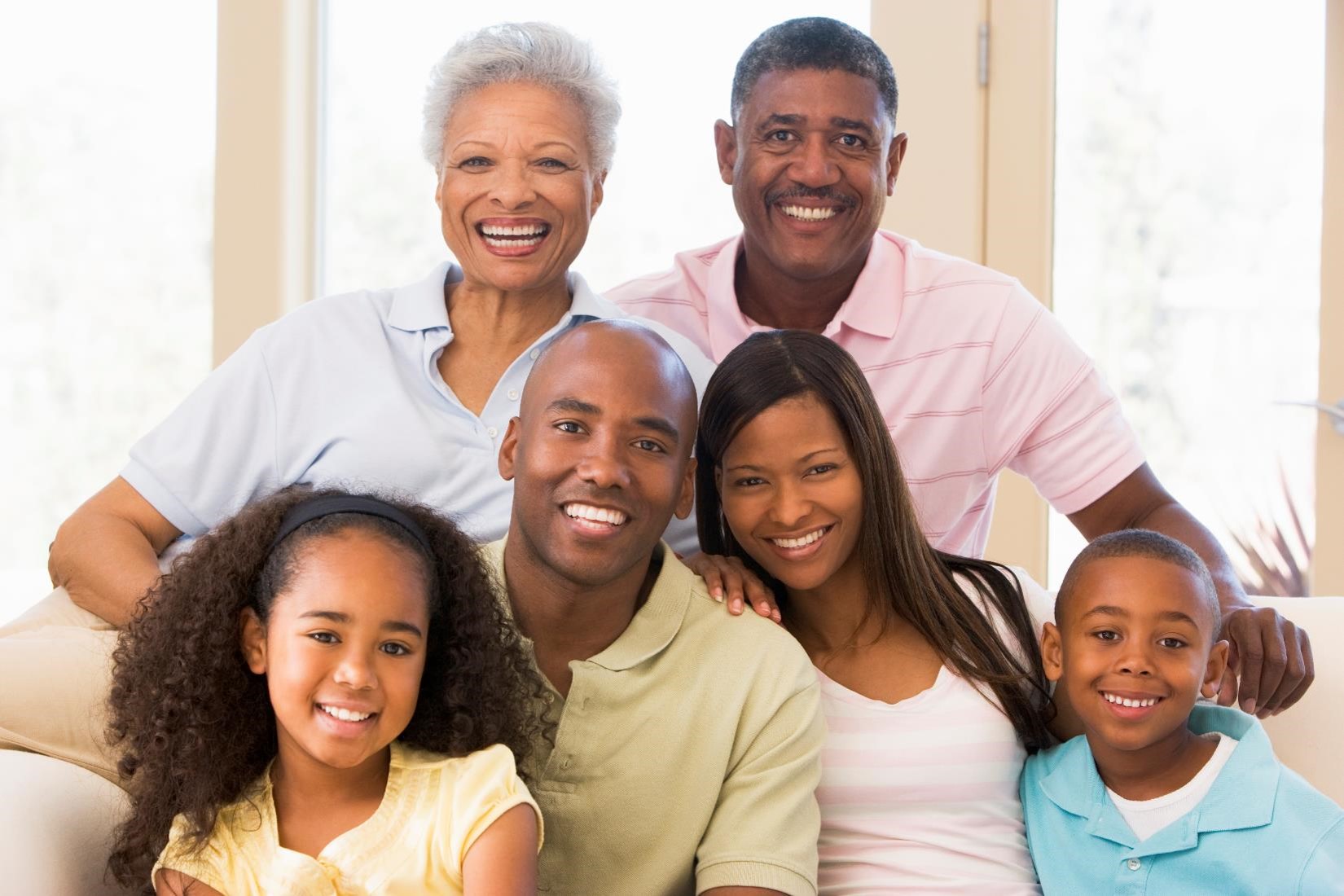Long Live Louisiana Grandparents: Preventing Falls among Older Adults
Grandparents are a cornerstone of Louisiana families. They play a key role in their grandchildren’s growth and development and can serve as an essential source of wisdom and experience for new parents. But grandparents don’t always just play a helping role – in Louisiana and across the United States, many grandparents are the primary caregivers for their grandchildren.

According to the 2010 United States Census, Louisiana has the third-highest percentage of children living with their grandparents in the United States. Roughly 1 in 9 children live with grandparents who are the heads of households. Children’s parents often also live in these households, but grandparents are the primary caregivers for over 72,000 children in Louisiana. Helping ensure that grandparents remain healthy and active as they get older is critically important for Louisiana families.
One way to help ensure the health of Louisiana grandparents is to prevent falls. Falls are the leading cause of non-fatal injuries in Louisiana and in the nation.¹ In 2014-2015, an average of 8,400 hospitalizations occurred due to unintentional falls each year.² That means that about once per hour in Louisiana, a person is hospitalized for a fall.³ The majority of fall-related hospitalizations in 2014-2015 occurred in people aged 75 or older, and about 3,200 resulted in hip fractures (38%), while 1,500 resulted in traumatic brain injury (18%).²
Falls don’t always just lead to injury – they can be fatal, especially among older people. In 2015, 341 Louisianans died due to unintentional falls.³ The majority of those fall-related deaths occurred in people 75 years or older (218 deaths).³
The good news about falls is that most of them can be prevented. The National Council on Aging recommends six steps you can take to help protect your older loved ones from falls:
- Enlist their support in taking simple steps to stay safe. Ask your older loved one if they’re concerned about falling. Many older adults recognize that falling is a risk, but they believe it won’t happen to them or they won’t get hurt, even if they’ve already fallen in the past. If they’re concerned about falling, dizziness, or balance, suggest that they discuss it with their health care provider.
- Discuss their current health conditions and medications. Are they having trouble remembering to take their medications or are they experiencing side effects? Is it getting more difficult for them to do things they used to do easily? Are hearing and vision changes becoming a problem? Encourage them to speak openly with their health care provider about all of their concerns. Also make sure they’re taking advantage of all the preventive benefits now offered under Medicare, such as the Annual Wellness visit.
- Ask about their last eye checkup. If they wear glasses, make sure they have a current prescription and they’re using the glasses as advised by their eye doctor. Tint-changing lenses can be hazardous when going from bright sun into darker buildings and homes. A simple strategy is to change glasses when they go inside, or stop walking until their lenses adjust. Bifocals also can also cause issues on stairs, so it’s important to be cautious. Those struggling with low vision should consult with a low vision specialist for ways to make the most of their eyesight.
- Notice if they’re holding onto walls, furniture, or someone else when walking or if they are having difficulty walking or getting up from a chair. These are all signs that it might be time to see a physical therapist. A trained physical therapist can help your older loved one improve their balance, strength, and gait through exercise. They might also suggest a cane or walker and provide guidance on how to use these aids safely.
- Talk about their medications. If your older loved one is having a hard time keeping track of medicines or is experiencing side effects, encourage them to discuss their concerns with their doctor and pharmacist. Suggest that they have their medications reviewed each time they get a new prescription. Also, beware of non-prescription medications that contain sleep aids —including painkillers with “PM” in their names. These can lead to balance issues and dizziness. If your older loved one is having sleeping problems, encourage them to talk to their doctor or pharmacist about safer alternatives
- Do a walk-through safety assessment of their home. There are many simple and inexpensive ways to make a home safer. Increase lighting throughout the house, and make sure it’s easy to turn the lights on when getting up in the middle of the night. Make sure stairs have two secure rails. In bathrooms, install grab bars in the tub or shower and near the toilet. For greater safety, a shower chair or handheld shower can be a great solution. For professional assistance, consult an Occupational Therapist.
If you have an aging parent, grandparent, or neighbor in your life, helping them reduce their risk of falling is a great way to help them stay healthy and independent as long as possible. You can find more fall-prevention resources from the National Council on Aging online.
Sources:
- Centers for Disease Control and Prevention, National Center for Injury Prevention and Control. Web-based Injury Statistics Query and Reporting System (WISQARS) [online]. (2015) [9/20/2017]. Available from URL: cdc.gov/injury/wisqars
- Louisiana hospital discharge data (2015 and 2014)
- Louisiana Vital Records (2015)


